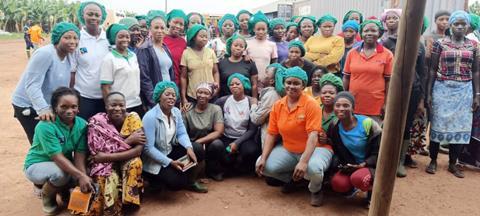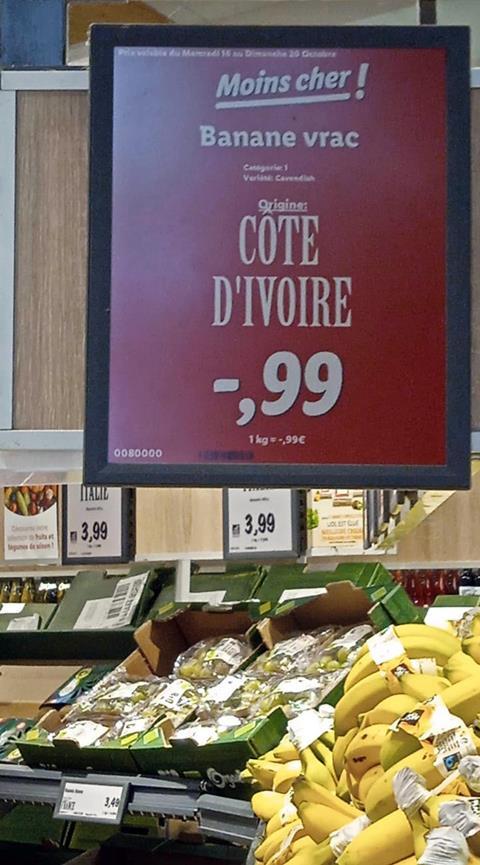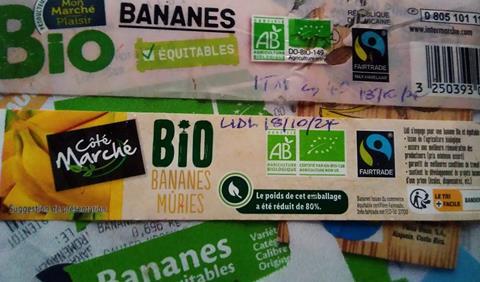Business urgently needs fair prices, mutual transparency, and a shift away from over-certification, says Banana Link’s international coordinator

The message delivered by three electrifying panels, hosted by the Latin American Banana Task Force and the FAO-based World Banana Forum (WBF) secretariat at Fruit Attraction 2024 in Madrid, was stark: only by working and planning together – from the lowest paid workers to shareholders in multiple retail companies – can real transformation in the banana business be managed.
This was not some small, consumer-country NGO with no commercial imperative, verbalising its aspirations in a vacuum of public attention, or a half-empty room.
No, it was the top leadership of two-thirds of the world’s fresh dessert banana producers and exporting companies, in front of audiences full of other key industry players.
For the handful of civil society organisations who had made the journey to the Spanish capital in October, this united call from the world’s leading producing countries included many of the messages that a 20-strong delegation of the world’s independent trade union and small farmer organisation leaders had tried to transmit two years ago at the same trade fair.

An urgent need for change
Way back in 1998 and 2005 in Brussels, then in Rome in 2009, Guayaquil in 2012, Geneva in 2017, and Rome last March at the fourth international WBF conference, the message from organised civil society organisations about the plight of the international banana trade was very clear: socio-economic and ecological transformation is necessary and urgent, but only a collective effort can pull producers and consumers through.
Much of the strategic and thematic advice from trade unions, plus small farmers’ and civil society organisations, has now been taken up by the leading industry players themselves.
Last month in Madrid, we heard from the Ecuadorian Banana Cluster of exporters and producers, Ecuador’s Agriculture Minister and major banana producer Daniel Palacios, the National Banana Corporation of Costa Rica (Corbana), leaders of both Colombian producer-exporter bodies Augura and Asbama, together with their African and Caribbean counterparts representing the entire industry of west and central Africa (Afruibana) and the Dominican Republic (Adobanano).
Also on the panels were representatives of Dole, Chiquita Brands International, Fairtrade International, Latin American and Caribbean Fairtrade producer network Clac, and the most widely used certification providers, GlobalGAP and Rainforest Alliance.

Fair prices, fair wages
What were their main messages ? First, fair prices for living remuneration of producers and workers.
When African producers supplying France learned that their 2024 contract with the world’s most globalised retailer – buying and re-selling on all continents – would cut two euros per box of organic Fairtrade bananas, and one euro per box of conventional fruit, there was disgust, even despair.
Losing market share to France’s food retail market leader on the one hand, and to the ubiquitous German discounters on the other, was that retailer’s only real consideration in cutting over 10 per cent off the box price paid to suppliers.
Never mind the social and environmental investments made over many years. Never mind the public corporate responsibility discourse.
The fact was that, for many French and other European and UK retailers, 2023 contract prices were judged to have risen too high, especially now that shipping and input prices were supposedly settling back down post-Covid.
In October, that same French market leader offered three different ways to buy Cote d’Ivoire bananas – loose, hands of five, or band-wrapped in plastic – and charged anything from 79 euro cents (“a short-term promotion”) to €1.80 per kilo… for the supplier’s same fruit. Enough said?!
Mutual transparency
The second message: human rights and environmental regulations must be reciprocal and transparent at both ends.
The much-bandied language of ‘transparency’ also appears to the world’s banana producers to be a non-reciprocal appeal, where the distribution of value and margins at the downstream end of the chain – once fruit is loaded FoB – are anything but transparent.
It’s the same when it comes to how the EU is perceived to have developed some aspects of pesticide residue legislation, or new organic certification rules, and once again the lack of scrutiny of, say, trade union rights, wages, and workplace health and safety in the lead buyer firms’ own operations.
At worst, sheer hypocrisy from the old colonial masters and their modern-day acolytes. At best, a kind of beatific ignorance of realities for producers and all the human beings employed at the beginning and all along the leading companies’ supply chains.
Over-certification
Third, the plethora of private standards has led us to over-certification. And this has to stop.
Take a glance at the accompanying image of band-wrapped bunches sold in France. A leading producer in Africa, one heavily invested in a genuinely impressive, large-scale agro-ecological transition on its five banana estates, packs 36 different box and pack types every week.
Those packs carry any number of stickers and labels, according to the customer, for buyers in the UK and other parts of Europe.
The Latin Americans, led by Ecuador, carried out a study late last year that showed 60 percent overlap – duplication – between the standards required by buyers.
Those standards oblige producers to comply with between one and four of a dozen different private certification schemes in the crazy world of banana import-export.
Enough said? Not quite…
Rainforest Alliance, fingered for over a decade by the independent trade unions that represent workers in plantations and packhouses across Latin America, the Caribbean and Africa, now needs to “adapt or die”, as a spokesperson from one leading fruit multinational delicately put it back in March at the FAO in Rome.
African producers are ready to stop using RA certification right now, if their customers were to understand why.
Watch this space.

Topics
- Africa
- Angola
- Asia
- Bananas
- Belize
- Cameroon
- Colombia
- Congo, Democratic Republic
- Congo, Republic
- Costa Rica
- Côte d'Ivoire
- Dominica
- Dominican Republic
- Ecuador
- Ethical trade
- Europe
- Fruit
- Ghana
- Global
- Grenada
- Guadeloupe
- Guatemala
- Jamaica
- Markets
- Martinique
- North America
- Panama
- Philippines
- Production & Trade
- Retail
- Saint Lucia
- Saint Vincent and the Grenadines
- South America
- Supply
- Suriname
- Sustainability
- Trinidad and Tobago



